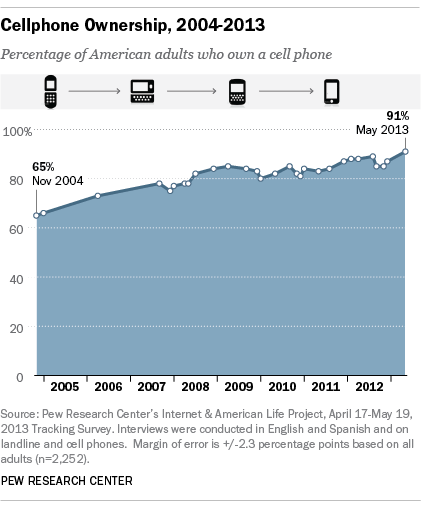The Quiet Reason Your FOMO is Worse Than Ever

By:
We’ve all been there. You can barely wait for the landing gear to come out before taking your phone off airplane mode. You designate times to “unplug” and step away from your device so you can interact with the world and people around you.
RELATED: One App Is Trying to Undo Your Smartphone Addiction
As a culture, we’re obsessed with connectivity. In fact, you’re probably reading this article on your mobile device right now. And while there are undeniable positives of our interconnected society, this article is about the cultural affliction of a generation: FOMO.
FOMO, or "fear of missing out," is traditionally defined as the anxious, consuming feeling that there's something happening, right now, and you aren't a part of it. But there's a tiny subset of FOMO that I experience a lot, and I'm willing to be you do too: The compulsion to constantly check email, refresh my newsfeed, and check my messages in case I've missed something.
This phenomenon is described by some people as nomophobia: the rush of anxiety and fear you get when you realize you are disconnected or out of the loop with friends, family, work, and the world.
What is nomophobia?
Nomophobia is a strange mash-up of "no mobile phone phobia," according to Psychology Today, and it affects an increasing number of people.
In a study conducted by Versapak, more than half of the 1,245 U.K. residents reported feeling "extreme tech anxiety" when they were separated from their devices, according to the Telegraph.
“Being disconnected from technology is surprisingly stressful. There’s often a feeling of missing out, as we worry about what’s going on in the world of work, social media or news without our knowledge," Leon Edwards, managing director of Versapak, reportedly said.
RELATED: Instagram Star Essena O'Neill Condemns Social Media
The phenomenon also extends to the workplace. Dr. Emma Russell, an occupational psychologist at Kingston's Centre for Research in Employment, Skills and Society (CRESS), has conducted extensive research on the positives and negatives of email use at work. Dr. Russell told Kingston University London:
"Some workers became so obsessed by email that they even reported experiencing so-called phantom alerts where they think their phone has vibrated or bleeped with an incoming email when in fact it has not. Others said they felt they needed to physically hold their smartphone when they were not at their desk so that they were in constant email contact."
The increasing accessibility of smartphones and internet doesn't help, Dr. Russell points out.
"Back in the dial-up era, when going online had a cost implication, most people checked email maybe once a day and often responded as soon as they read them," Dr. Russell told Kingston University London. "Now, with broadband and 3G, unlimited numbers of messages can be streamed through smartphones at any time of the day or night."
This can compel people to respond to emails and messages at all hours of the night, making it incredibly difficult to switch off and relax.
How connected are we?
As of July 2015, 68 percent of American adults have a smart phone, the Pew Research Center notes, and that number is on the uptick.
 Pew Research Center - pewresearch.org
Pew Research Center - pewresearch.org
These millions of mobile users are extremely attached to their phones, the Pew Research Center reports.
RELATED: Why It's So Important to Unplug from Technology
In 2012, the Pew Research Center identified these statistics about mobile device use:
"67 percent of cell owners find themselves checking their phone for messages, calls and alerts, even when they haven’t heard any notification or buzzing to indicate that they should.
"44 percent of people surveyed slept with their phone next to their bed, to ensure they wouldn’t miss any calls, texts or updates while sleeping.
"29 percent identified their phone as “something they can’t imagine living without.”
These numbers are even higher amongst Millennials. A 2012 study conducted by Cisco suggests that 40 percent of American 18-30 year olds check their smart phone at least once every 10 minutes.
RELATED: Wearable Tech Is Taking Over
Gaining control.
Some people feel the need to disconnect so strongly, they're willing to pay hundreds of dollars to go to tech-free camps to unplug.
Others aren't so aware of the impact that this obsession with connectivity can have on your life. That includes decisions that you make subconsciously make with your social media interaction and presence in mind.
Dr. Reef Karim, a psychiatrist, told the Toronto Sun:
“When we see pictures of great parties, events or captivating moments, we want that as well. And many people desperately don’t want to miss out on these moments.”
What can you do about it?
There is some argument over whether or not your mobile phone separation anxiety should actually be referred to as a "phobia," but if you believe that nomophobia has a profound negative effect on your life, you can use the American Psychological Association's psychologist locator to find a professional who can help point you in right direction to help you put down the phone and manage the anxiety.
